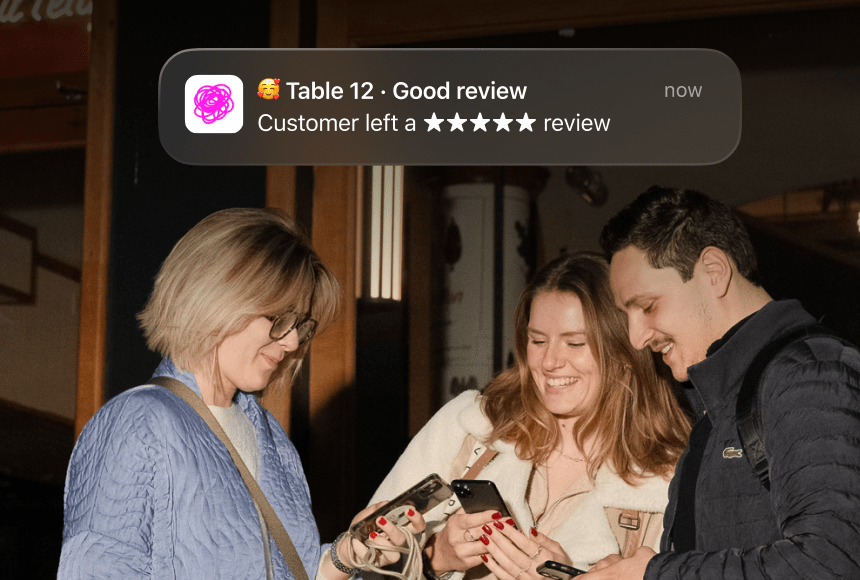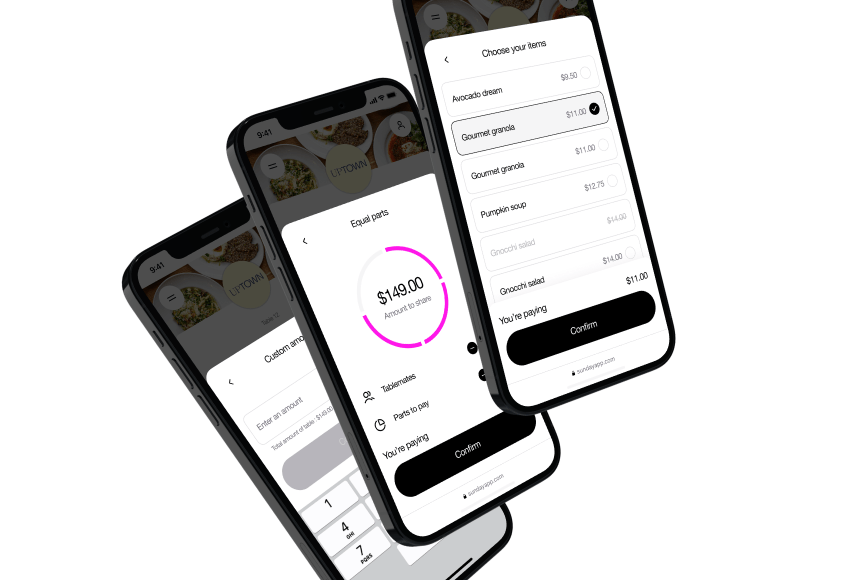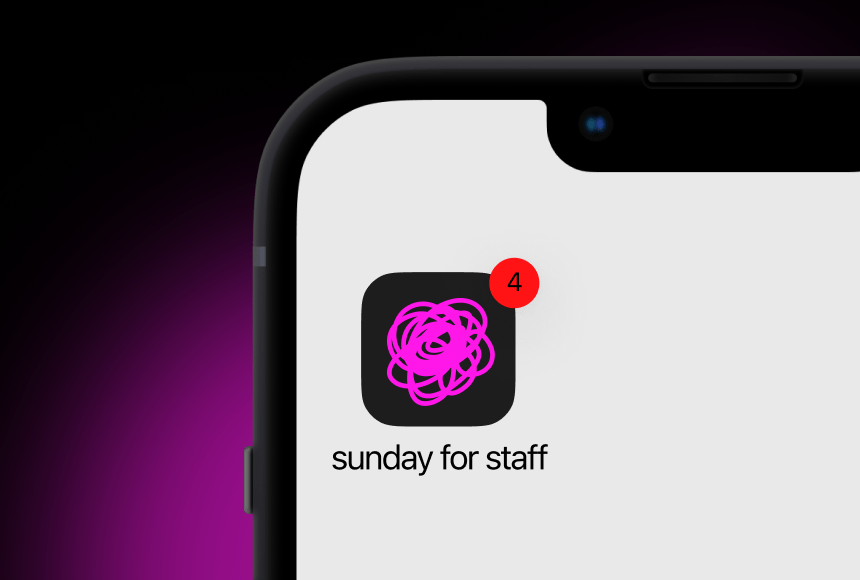
Connecting Happy Employees to Happy Guests in Your Restaurant
If you’ve been in the restaurant business for any length of time, you’ve heard the old adage: “Happy employees make happy customers.” But in today’s fast-paced hospitality environment, this saying takes on a deeper meaning. Employee satisfaction isn’t just about preventing turnover (though that’s a huge plus); it directly shapes the overall dining experience your guests receive. Think about it: a stressed-out server who’s juggling too many tasks without the right support is less likely to notice small details that elevate a meal from “average” to “outstanding.” Conversely, a team that feels valued, empowered, and recognized often goes the extra mile, whether that’s creating a warm greeting at the door or recommending the perfect appetizer.
Below, we’ll dig into why a content, motivated staff can transform your restaurant and keep customers returning for more. We’ll look at facts and anecdotes from across the industry, plus simple yet powerful actions you can take to foster a people-first culture—one that doesn’t just survive, but thrives.
The Ripple Effect: Why Staff Happiness Drives Customer Satisfaction
Reducing Turnover for Better Consistency
High employee turnover is notorious in the restaurant world. A 2022 report by the National Restaurant Association showed turnover rates hovering around 70% in some segments of the industry. That’s a staggering number, and constant hiring, training, and onboarding can eat away at your resources, morale, and overall consistency. When staff members stick around because they’re satisfied, they hone their skills, get to know regular customers, and develop that intangible rapport that sets your establishment apart.
Boosting Service Quality
Customer service is an art. It’s about reading cues, responding to problems quickly, and making diners feel truly welcomed. Enthusiastic, confident employees are more likely to:
- Offer personalized recommendations
- Notice special occasions (birthdays, anniversaries)
- Handle mistakes (like kitchen errors or slow times) with grace
A positive work culture also fosters cooperation between the kitchen and front of house. When everyone is on the same page—cheerful, united, and proactive—guests perceive your restaurant as seamless and professional.
Strengthening Emotional Connection
Think of your staff as ambassadors for your brand. When they’re proud of where they work, that pride radiates to guests. In the U.S., where diners have countless options for where to spend their money, a welcoming atmosphere can be the deciding factor. According to a 2023 survey by Yelp, 71% of American diners said they place significant value on friendly, genuine interactions with staff—sometimes even above the quality of the meal itself. That’s a powerful incentive to invest in your team’s well-being.
The Numbers Don’t Lie: Linking Staff Satisfaction to Profit
Higher Ticket Averages
If employees feel motivated, they’ll naturally put more care into every aspect of service—like describing menu items, highlighting daily specials, and suggesting add-ons. Studies show that motivated servers can increase average check sizes by up to 20%, especially when they’re comfortable recommending complementary drinks or desserts.
Reduced Training Costs
Every time an employee leaves, you’re not just losing a person—you’re losing the time you spent onboarding them and the institutional knowledge they developed. When staff stay longer, those saved hiring and training costs can be funneled into new initiatives or improvements that further enhance the customer experience.
Positive Online Reviews
Word-of-mouth today often takes the form of Google ratings, Yelp comments, or Instagram stories. If your employees are cheerful and helpful, guests are more likely to rave online. Since 94% of consumers in a 2022 ReviewTrackers poll said they read online reviews before dining out, it’s crucial to encourage those five-star sentiments that come from employees who love their jobs.
Core Ways to Boost Employee Satisfaction in Your Restaurant
- Offer Competitive Wages and Tips
In the U.S., where tipping remains prevalent, employees want to see that their base wage aligns with industry standards, and that tip distribution is transparent. A solution like sunday can help streamline tipping and reduce end-of-shift confusion. By letting guests pay via a QR code, leave a tip, and post a Google review in one go, you minimize server stress and maximize potential gratuities. That sense of fairness and efficiency fosters a strong sense of job satisfaction. - Provide Growth Opportunities
Restaurants aren’t just stepping stones anymore; they can be legitimate career paths. Whether that’s a barback evolving into a bartender, or a line cook learning advanced culinary techniques, creating a ladder of growth can help employees feel invested. You can host monthly cooking demos, invite wine experts for tastings, or sponsor industry certifications to demonstrate your commitment to nurturing staff potential. - Cultivate a Respectful Team Culture
A restaurant is a melting pot of personalities, backgrounds, and skill sets. Ensuring that everyone is treated with dignity—regardless of their role—goes a long way. Simple gestures, like listening to feedback during daily pre-shift meetings, addressing interpersonal conflicts openly, or celebrating mini-achievements (like “Server of the Month”), can keep morale high. A 2021 Deloitte study indicated that 72% of hospitality workers who feel “heard” by management are more likely to stay past the one-year mark. - Schedule Smartly for Work-Life Balance
Hospitality often includes late nights, weekends, and holiday shifts—times when the rest of the world is off. To maintain employee happiness, aim for predictable scheduling. When staff can plan their personal lives or request certain days in advance, it reduces burnout. Tools that automate or simplify scheduling, factoring in forecasted busy periods, also prevent the dreaded scenario of overstaffing on slow days or understaffing on event nights—both of which stress your team. - Offer Bonuses and Incentives
From weekly performance-based rewards (like highest sales or best upselling) to seasonal bonuses when you hit certain goals, incentives can motivate staff to go above and beyond. But remember: incentives aren’t solely financial. Additional perks—like a restaurant-funded health benefit, gym membership discounts, or staff outings—also promote loyalty and camaraderie.
How a Satisfied Staff Translates into a Memorable Guest Experience
Personalized, Proactive Service
Imagine your hostess greeting a customer by name (especially a returning one) or your sommelier recalling a diner’s favorite wine from a previous visit. These intimate gestures come more naturally to a team that feels appreciated and part of the restaurant’s success. They have the mental bandwidth to remember details and invest in building guest relationships.
Quicker Resolution of Issues
No restaurant is immune to mishaps—wrong orders, delayed plates, or tech glitches. However, a team that’s engaged is quicker to notice problems and rectify them. Instead of passing blame between the kitchen and the front of house, they work collectively to keep customers happy. A line cook who’s not overworked or resentful might promptly remake a flawed dish, while a well-trained server offers a genuine apology and perhaps a small complimentary item—turning a near-crisis into a loyalty-building moment.
Consistent Quality Over Time
A seasoned team, well-versed in the restaurant’s SOPs (standard operating procedures), is more likely to deliver consistent experiences, day after day. Guests notice the difference between a place where one server says something and another contradicts it, versus a fully aligned staff that uses the same greeting, similar menu descriptions, and consistent service steps. Consistency can be the tipping point for a diner deciding to become a regular.
Practical Ideas to Sustain Employee Engagement
Conduct One-on-One Check-Ins
While group meetings are good for synergy, personal discussions let employees voice concerns they might not share publicly. Maybe a server is overwhelmed with balancing college classes, or a barback wants to learn bartending skills. Offering short monthly or quarterly sit-downs demonstrates that their well-being matters.
Celebrate Small Wins
Did the kitchen successfully push out 100 covers during a busy Friday night without a single complaint? Announce it! Did a server get a glowing mention on Google or Yelp for being particularly welcoming? Give them a round of applause at the next staff meeting. Recognition fosters pride and encourages others to aim for similar praise.
Promote Open Collaboration
Allow employees to propose menu changes, special events, or marketing ideas. They’re often on the front lines, hearing customer feedback in real-time. By encouraging staff to share solutions, you not only spark creativity but also help them feel part of the restaurant’s evolution.
Incorporate Technology Where It Helps
Employees appreciate tools that make their jobs easier—not ones that bury them in new hassles. For example, using digital checklists for daily tasks or adopting a streamlined payment and tipping solution like sunday can reduce end-of-shift stress. If an app or device truly saves time or errors, staff will embrace it as a supportive ally, not an extra chore.
Data Points That Highlight the Connection
- A 2023 survey by Cornell’s Center for Hospitality Research indicated that for every 10% increase in employee satisfaction, average customer satisfaction scores rose by 7%.
- Restaurants that maintain high employee contentment see a 20–30% lower staff turnover rate compared to industry averages, leading to significant cost savings over time (source: CHR Cornell, 2022).
- According to a 2022 Glassdoor study, restaurants with a four-star employee rating on Glassdoor or Indeed often boast an equivalent or higher Google review rating from customers, suggesting a direct correlation between staff happiness and guest perception.
Moving Forward: Creating a Virtuous Cycle
When you prioritize your team’s happiness, you sow seeds for a virtuous cycle. Employees arrive each day with a positive mindset, customers sense the uplifting energy, online ratings improve, word-of-mouth spreads, and business thrives—allowing you to reinvest in your staff. The restaurant business, known for tight margins and demanding hours, becomes more sustainable when supported by a stable, motivated team.
A Few Takeaway Tips
- Keep lines of communication open—both for group feedback and individual concerns.
- Equip your team with the right technology to reduce stress (like effective POS systems or frictionless payment solutions).
- Recognize achievements often, no matter how small—consistency in praise can be as vital as consistency in wages.
- Provide growth pathways so employees aren’t tempted to jump to the next place offering a marginal pay bump.
A Future of Fulfillment for Staff and Diners Alike
As restaurants in the U.S. landscape continue to adapt—often juggling off-premise dining, new health regulations, and ever-changing consumer preferences—one constant remains: your staff is the living, breathing heart of the operation. By nurturing their satisfaction, you bolster not only your team’s morale but also the entire guest experience. It’s a classic win-win scenario where everyone at the table—both literally and figuratively—benefits.
So, whether you’re revising your tip-sharing system, experimenting with new staff benefits, or simply checking in more frequently with line cooks and hosts, remember this fundamental truth: treat employees like your most valued customers, and they’ll handle the rest. Bon appétit to an energized team and, in turn, a truly memorable restaurant experience that keeps patrons returning with a smile—and possibly a five-star review, too.
Find out more today
Drop us your details below and we’ll reach out within the next 24h
Get to know your team.
Gather insightful data about your staff in real-time.




